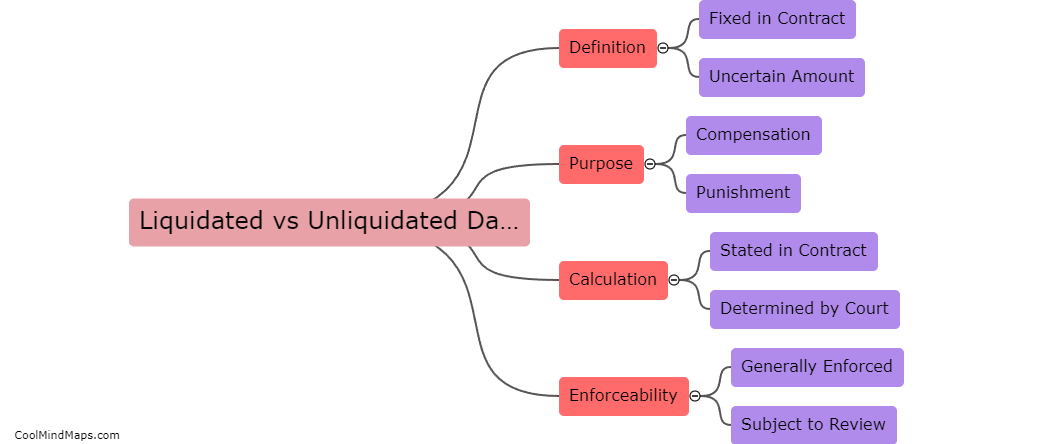How are civil and criminal laws different?
Civil and criminal laws differ in their main objectives and consequences. Civil laws are concerned with resolving disputes between individuals or groups and typically involve issues related to contracts, property, and personal injury. The goal of civil law is to compensate the injured party and restore them to their previous state. In contrast, criminal laws are designed to address actions that are considered harmful to society as a whole, such as theft, murder, and assault. Criminal offenses are prosecuted by the government and can result in penalties such as fines, probation, or imprisonment. Ultimately, civil laws focus on resolving disputes and providing compensation, while criminal laws focus on punishing individuals who commit acts that are deemed criminal.

This mind map was published on 12 May 2024 and has been viewed 60 times.











